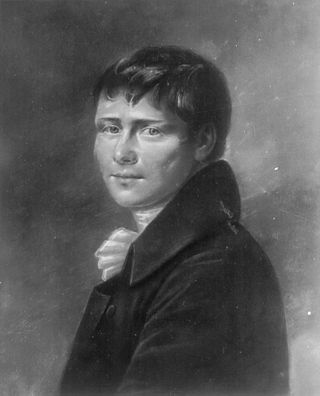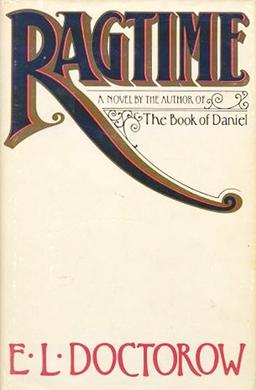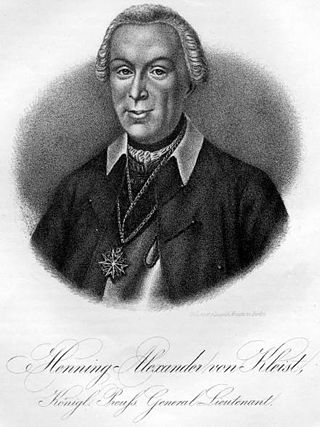
The Marquise of O (German : Die Marquise von O....) is a novella by Heinrich von Kleist on the subject of forced seduction. It was first published in 1808.

The Marquise of O (German : Die Marquise von O....) is a novella by Heinrich von Kleist on the subject of forced seduction. It was first published in 1808.
The story begins with a one-sentence paragraph – the widowed Marquise von O. places an announcement in the newspapers in a prominent north Italian town, saying she is pregnant and wishes the father of her child to come to her so she can marry him.
We learn Marquise is the daughter of Colonel G. He commanded the citadel of the town M. During the Napoleonic Wars in Italy, while the citadel was over-run by Russian forces, the Marquise was about to be gang-raped by Russian soldiers. However, she is saved by the Russian commander, Count F., appearing to her like an angel. After he brings her to safety, she falls unconscious. The Count finishes storming the citadel, attaining the surrender of the last pockets of resistance, and garrisoning the fort with his troopers. He leaves before the Marquise can thank him. The Marquise and her parents receive news shortly thereafter that Count F. was killed. His last words are reported as "Julietta, this bullet avenges you!" ("Julietta! Diese Kugel rächt dich!" in the original German). The Marquise is intrigued someone the Count knows so well should have her name of 'Julietta'.
The reports of Count F.'s death prove false, however. At the conclusion of the war, the Count appears at the house of Colonel G. to ask to marry the Marquise. He insists they marry immediately, although he seems to understand it is an unreasonable request, since they hardly know one another. The family suggests the Count can stay at their home so the two can get to know each other. The Count cannot accept this offer, although, because he has a pressing military duty in another town. Therefore, the family agrees the Count should leave to perform his military duty, and the Marquise will entertain no other prospective husbands in his absence. While he is away, the Marquise realizes she is pregnant. Although the symptoms of her pregnancy are clear, she and her mother are reluctant to believe it. They accept the reality after it is confirmed by a doctor and a midwife.
The Colonel kicks the Marquise out of his house, forbidding her to return despite her mother's protests. She moves to her deceased husband's estate in V. Meanwhile, the Count returns to M., hears the news of the Marquise's pregnancy, seems unsurprised, and tells the Marquise's brother he is convinced of her innocence. The Marquise's brother speaks ill of his sister, and questions the Count's sanity, given the latter's consistent interest in marrying the Marquise. The Count decides to visit her in V. After he is turned away by the porter, he enters through the garden and again begs the Marquise to marry him. She runs into the house, and locks the door.
The Marquise publishes her announcement in the newspaper, asking the father of the unborn child to step forward and reveal his identity since she is resolved to marry the person who put her in this situation. The next day, the newspaper prints another announcement, saying the father will be at the Colonel's house on the 3rd at eleven o’clock. The Colonel is furious, believing this is a ploy by his daughter to delude them into believing she is innocent. The Colonel's wife, however, goes to visit the Marquise. She tells the Marquise she knows the father... he is the groom, Leopardo, a servant of the household. After the Marquise seems to accept this for the truth, her mother reveals the trick, and says she believes the Marquise's innocence. She brings the Marquise back to M., and tells the Colonel to apologize. She leaves the Colonel and the Marquise non-chaperoned. After she returns, the Marquise is sitting in her father's lap while he is kissing her ardently on the lips "like a lover!" ("wie ein Verliebter!"); the Colonel's wife is pleased. They eagerly await the arrival of the mysterious father, and agree, unless he is below her status, the Marquise should marry him immediately. At the appointed hour, Leopardo walks in... to announce Count F.
The Colonel's wife is satisfied, because she knows the Count is well-off and of good character from her earlier investigations, but the Marquise is visibly upset, and says she was willing to marry "a vicious man" ("einen Lasterhaften") but not a devil. Her parents believe she is crazy, and agree she should marry the Count, as per her agreement. She agrees, unhappily, and the Colonel and the Count draw up a contract stipulating the Count is entitled to none of the rights of marriage... yet is bound by all its duties. They are married the following day. Their son is born, and the Count makes the boy a gift of 20,000 rubles, then makes the Marquise (now the Countess) his sole heir. Eventually, the Countess comes to be happy with him; and they celebrate a second marriage, a much happier one.
The rape is not explicitly indicated in the book, and scholars do not all agree on how important the rape is, or whether it happened at all, one of them arguing against the concept of rape and instead, the Marquise sought sexual gratification from the Count. [1] It happens, if it happens, in a dash: Then—the officer, [2] a dash which one scholar calls "the most-delicately accomplished rape in our literature". [1]
The novella was adapted as a film in 1976, directed by Éric Rohmer. It stars Edith Clever, Bruno Ganz, Peter Lühr, and Edda Seipel.
The Italian film Il seme della discordia is a modern adaptation of the novella.
The 1959 opera Julietta by Heimo Erbse is based on the novella.

Bernd Heinrich Wilhelm von Kleist was a German poet, dramatist, novelist, short story writer and journalist. His best known works are the theatre plays The Prince of Homburg, Das Käthchen von Heilbronn, The Broken Jug, Amphitryon and Penthesilea, and the novellas Michael Kohlhaas and The Marquise of O. Kleist died by suicide together with a close female friend who was terminally ill.

Ewald Christian von Kleist was a German poet and cavalry officer. His vast family was well-established in Farther Pomerania; 58 male members of his family fought in Frederick the Great's army of the Seven Years' War. Kleist was born at Zeblin, near Köslin (Koszalin) in Farther Pomerania, to the von Kleist family of cavalry leaders.

Ragtime is a novel by E. L. Doctorow, first published in 1975. The sweeping historical fiction occurs in the area of New York City between 1902 and 1912.

Michael Kohlhaas is a novella by the German author Heinrich von Kleist, based on a 16th-century story of Hans Kohlhase. Kleist published fragments of the work in volume 6 of his literary journal Phöbus in June 1808. The complete work was published in the first volume of Kleist's Erzählungen (novellas) in 1810.

The Marquise of O is a 1976 historical drama film written and directed by Éric Rohmer, based on the 1808 novella of the same name by Heinrich von Kleist. Set in 1799, the film tells the story of the Marquise von O, a virtuous widow, who finds herself pregnant and protests her innocence while possibly deserving to be exiled. The film won the Grand Prix Spécial Prize at the 1976 Cannes Film Festival.

Penthesilea is an 1808 tragedy by the German playwright Heinrich von Kleist about the mythological Amazon queen, Penthesilea, described as an exploration of sexual frenzy. Goethe rejected it as "unplayable". It was first performed on 25 April 1876 at the Königliches Schauspielhaus in Berlin, 65 years after the author's death.

Reading Like a Writer is a writing guide by American writer Francine Prose, published in 2006.
Heimo Erbse was a German composer from Rudolstadt.

The Castle of Wolfenbach (1793) is the most famous novel written by the English Gothic novelist Eliza Parsons. First published in two volumes in 1793, it is among the seven "horrid novels" recommended by the character Isabella Thorpe in Jane Austen's novel Northanger Abbey and an important early work in the genre, predating Ann Radcliffe's The Mysteries of Udolpho and Matthew Lewis's The Monk.
Dear creature! How much I am obliged to you; and when you have finished Udolpho, we will read The Italian together; and I have made out a list of ten or twelve more of the same kind for you.
Have you, indeed! How glad I am! What are they all?
I will read you their names directly; here they are, in my pocketbook. Castle of Wolfenbach, Clermont, Mysterious Warnings, Necromancer of the Black Forest, Midnight Bell, Orphan of the Rhine, and Horrid Mysteries. Those will last us some time.
Yes, pretty well; but are they all horrid, are you sure they are all horrid?

The Reef is a 1912 novel by American writer Edith Wharton. It was published by D. Appleton & Company. It concerns a romance between a widow and her former lover. The novel takes place in Paris and rural France, but primarily features American characters. While writing the novel, Edith Wharton visited England, Sicily, and Germany, among other locations. In a letter to Bernard Berenson in November 1912, Wharton expressed regret regarding her novel, calling it a “poor miserable lifeless lump”. She wrote, “Anyhow, remember it’s not me, though I thought it was when I was writing it—& that next time I’m going to do something worthwhile!!”
Martin Greenberg was an American poet and translator.

Karoline Friederike Louise Maximiliane von Günderrode was a German Romantic poet. She used the pen name Tian.

Das Käthchen von Heilbronn oder Die Feuerprobe (1807–1808) is a "great historical knightly play" in five acts by the German playwright Heinrich von Kleist. The action of the drama takes place in Swabia during the Middle Ages.

The Duel is a novella by Anton Chekhov originally published in 1891; it was adapted for the screen by Iosif Kheifits in 1973 and by Dover Kosashvili in 2010.

Caste is a comedy drama by T. W. Robertson, first seen in 1867. The play was the third of several successes by Robertson produced in London's West End by Squire Bancroft and his wife Marie Wilton. As its name suggests, Caste concerns distinctions of class and rank. The son of a French nobleman marries a ballet dancer and then goes to war. When word arrives that he has been killed in action, his mother tries to wrest the child from his penniless widow.

Amour Fou is a 2014 Austrian film directed by Jessica Hausner, starring Christian Friedel and Birte Schnöink. The story is set in Berlin in 1810 and 1811, and follows the German writer Heinrich von Kleist and his lover Henriette Vogel in the final stages of their lives. It was screened in the Un Certain Regard section at the 2014 Cannes Film Festival.

Henning Alexander von Kleist (1676/77–1749) was an 18th-century Prussian field marshal. He fought in the War of Spanish Succession, the Great Northern War, and in the Wars of Austrian Succession. In particular, his actions at the Battle of Mollwitz brought him acclaim, although he had long been a stalwart supporter of Prussian military developments by the Prussian kings Frederick (1740–1786) and Frederick William I (1713–1740).

Henning Alexander von Kleist was a Prussian Lieutenant-General and Chief of Fusiliers. He was a winner of the Order Pour le Merite and hereditary lord of properties at Juchow, Zammenz and Falkenhagen. He was also Governor of the Spandau Citadel.
Julietta is a 1959 opera by Heimo Erbse based on Heinrich von Kleist's novel Die Marquise von O. The opera was premiered at the Salzburg Festival and a recording was made. Although Rolf Liebermann's Die Schule der Frauen had been moderately well received at Salzburg in 1957, like Samuel Barber's Vanessa given its European premiere in Salzburg in 1958, and Frank Martin's Mysterium von der Geburt des Herrn (1960) after it, Erbse's Julietta met with critical disapproval and small audiences.
David Luke (1921–2005) was a scholar of German literature at Christ Church, Oxford.